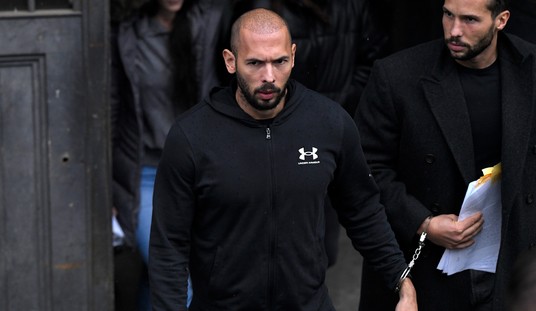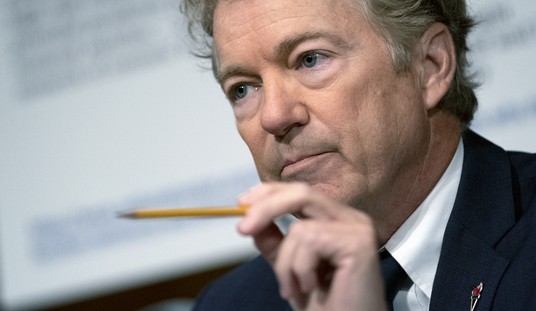Shady, but not surprising.
The U.S. Circuit Court of Appeals for the District of Columbia granted an Obama administration request to have its full complement of judges re-hear a challenge to regulations that allow health insurance tax credits under the Affordable Care Act for consumers in all 50 states.
The announcement diminishes the prospect of Supreme Court review of the issue in the near term. The initial 2-1 appeals court ruling in Washington came out the same day that a panel of appellate judges in Richmond, Virginia, unanimously sided with the administration on the same issue.
The fact that the D.C. Circuit and the Fourth Circuit were split on whether subsidies are available to consumers on the federal O-Care exchange all but guaranteed that the Supreme Court would take the case — unless, that is, the full D.C. Circuit chose to rehear it en banc first and overrule the three-judge panel. They’ve now taken the first step; the next step, in which the decision is overturned, is a fait accompli given the Circuit’s liberal tilt. It used to be evenly divided between lefties and righties until Harry Reid nuked the filibuster for lower-court judges. That cleared the way for Democrats to install a bunch more progressives on the Circuit. And one thing about progressive judges: They’re highly reliable ideologically. There’s next to zero chance that the three-judge panel’s ruling on subsidies will stand, which means in a few months there’ll be no circuit split and no urgency for the Supremes to take this case.
What makes this shady (apart from Senate Democrats destroying the filibuster, I mean) is the Circuit’s own standards for en banc rehearing. Adam White, an appellate lawyer in Washington, argued last month in an op-ed that it was actually insulting to the Circuit for people to assume that they’d automatically grant a rehearing given the high bar they’d set for such things:
But if the D.C. Circuit rehears the case en banc, it would be a sharp break from history. The D.C. Circuit rehears virtually none of its cases. Each year the court’s three-judge panels make roughly 500 rulings, but the court averages roughly one en banc rehearing. This year has produced a bumper crop: two. The previous year: zero.
The low numbers are thanks to the court’s high standard, found in the Federal Rules of Appellate Procedure: En banc rehearing “is not favored and ordinarily will not be ordered” unless the case satisfies one of two standards. First, an en banc rehearing may be needed to “secure or maintain uniformity of the court’s decisions.” A three-judge panel is not allowed to overrule old precedents, even when precedents are in conflict; only the full court can do so, en banc.
Second, en banc rehearing is appropriate for what the federal appellate rules call cases of “exceptional importance.” For the D.C. Circuit, this standard has been met almost exclusively by cases raising serious constitutional issues. Over the past decade seven of the nine cases reheard en banc raised difficult questions of constitutional law, such as the rights of Guantanamo detainees or of terminally ill patients.
The Halbig case didn’t overrule old precedent and it doesn’t touch on constitutional issues. You can understand why the full Circuit would be more lenient with rehearings for the latter: If they thought a three-judge panel had botched a constitutional case, an en banc reversal might be the only way to undo it. The Supreme Court might not agree to hear an appeal on the panel’s ruling and Congress, of course, would be powerless to reverse a constitutional ruling by legislation. The en banc option is essential there to get the law right. It’s not essential here. The question posed in Halbig is straightforward: Does the phrase “an exchange established by the State” in the statutory text of ObamaCare include the federal ObamaCare exchange? Even if the full Circuit thinks the three-judge panel got it wrong, Congress has the power to amend that text and make clear that subsidies are available to everyone. The en banc rehearing is unnecessary.
What you’re seeing here then, it seems, is a policy judgment by the D.C. Circuit’s liberals that the Republican House will never agree to amend the text, therefore the court has no choice but to bypass democratic channels and resolve this question itself. (That’s not unlike Obama dubiously implying that he has more executive power constitutionally when Congress is mired in gridlock.) You’re also seeing a political judgment from the court that they can’t allow a split with the Fourth Circuit on this issue to stand for fear that that’ll force the conservative-leaning Supreme Court to hear the case, which would be highly risky for O-Care supporters. Their best shot to secure a liberal outcome that protects subsidies for federal exchange consumers is to grant an en banc rehearing, reverse the three-judge panel’s decision, and then hope, hope, hope that the Supremes don’t grant cert. I don’t know how else to read today’s order. The full court wants to protect ObamaCare and they’re playing the only card they have to do so, even if it means ignoring their own standards for when to grant en banc petitions.
But look. SCOTUS can still take this case if it wants to, regardless of how the D.C. Circuit rules. They don’t even need Anthony Kennedy’s support to do it. It takes just four votes to grant cert; Scalia, Thomas, and Alito will all be game, I assume. The X factors are Kennedy and John Roberts, who might be leery of revisiting this subject after the ordeal of his landmark O-Care ruling in 2012. I continue to think that if Roberts wasn’t willing to blow up the law on the launchpad two years ago, he’s certainly not going to blow it up now that it’s taken flight. It all comes down to Kennedy. As usual.








Join the conversation as a VIP Member